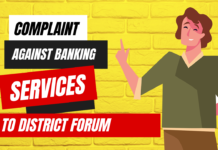Our mental filters operate at the subconscious level and are influenced by a variety of factors, including:
- Confirmation bias: Confirmation bias is a cognitive bias that refers to the tendency to seek out, interpret, and remember information in a way that confirms our existing beliefs, values, and expectations, while ignoring or discounting information that contradicts them. In other words, people tend to seek out information that supports what they already believe and disregard or downplay information that challenges those beliefs.
- Expectations: Expectations are the beliefs, assumptions, and hopes we have about how people, events, or situations will unfold. Expectations can be based on our past experiences, cultural and societal norms, or personal preferences. Our expectations can influence how we perceive and respond to new information and can have a significant impact on our behavior and emotions.
- Stereotypes: Stereotypes are oversimplified and generalized beliefs or attitudes that we hold about groups of people based on their characteristics such as race, ethnicity, gender, religion, or nationality. Stereotypes are often formed based on limited or incomplete information, personal biases, and social and cultural influences.
- Emotions: Emotions are complex psychological experiences that involve a range of physiological and cognitive responses to external or internal stimuli. Emotions can be positive (e.g., happiness, joy, love) or negative (e.g., anger, sadness, fear), and can be influenced by a variety of factors, such as our environment, relationships, and past experiences.
- Culture and upbringing: Culture and upbringing can play a significant role in shaping our beliefs, values, attitudes, and behaviors. Culture refers to the shared beliefs, customs, practices, and social behaviors of a particular group or society, while upbringing refers to the way we were raised and the values and beliefs that were instilled in us during childhood. Our culture and upbringing can influence our worldview, including our perceptions of self, others, and the world around us. It can affect how we communicate, interact with others, and make decisions.
- Cognitive distortions: Cognitive distortions are patterns of thinking that can lead to negative or inaccurate perceptions of ourselves, others, and the world around us. They are automatic and often unconscious thoughts that can arise from negative experiences or beliefs, and can contribute to a range of mental health issues such as anxiety, depression, and low self-esteem.
Mental filters can impact our communication and relationships with others. By becoming aware of our mental filters and actively challenging them, we can improve our ability to understand and communicate with others, and to avoid biases and stereotypes that can lead to misunderstandings and conflict. This can involve practicing empathy, active listening, and open-mindedness, and seeking out diverse perspectives and experiences.










